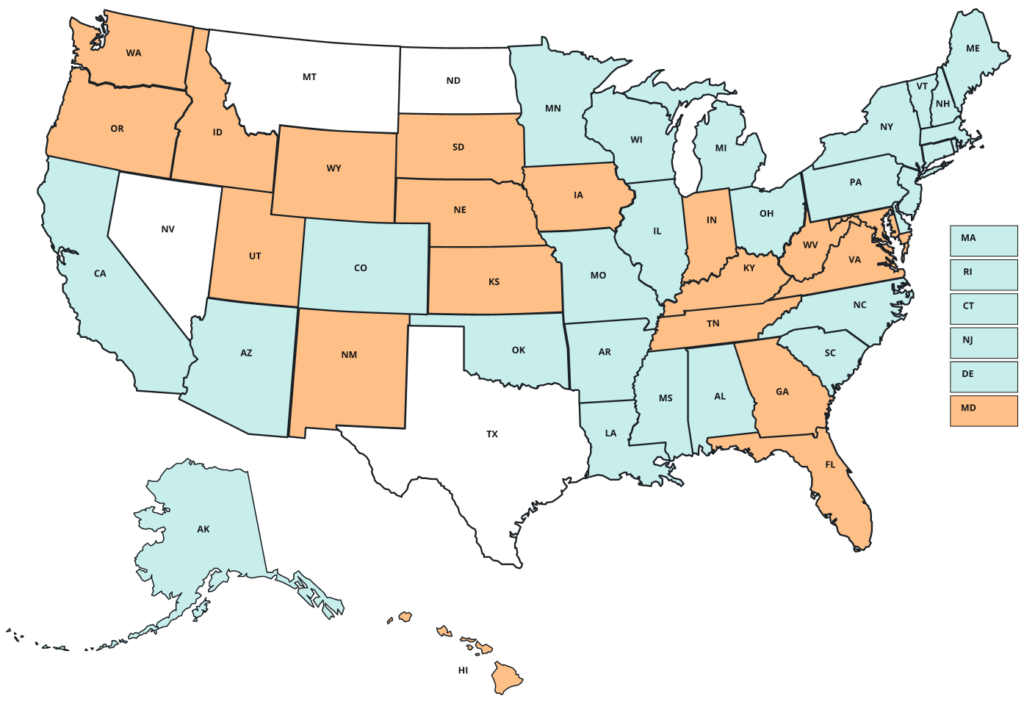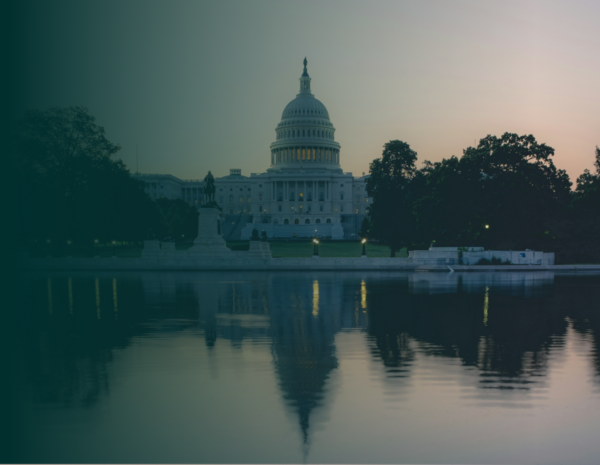Where do state legislative sessions stand as of May 8, 2024? Tracking policy requires a keen awareness of the dynamics across many states.
For policy professionals, tracking policy across the country requires a keen awareness of the legislation deliberated across many states. But staying informed doesn’t stop at developing knowledge of the conversations at hand. Practitioners must also mind the speed at which policy deliberations occur. Advocates will generally have more time to react to a policy proposal in the early days of state legislative sessions. Things get frantic, however, when new amendments are added to bills in the final days before adjournment.

Most states kick off their legislative work in January of each year. For many, the consistency starts and ends there. Varying session end dates mean that some legislative sessions are a sprint, while others have a much slower pace. Keeping all this information in mind amidst the chaos of legislative work can be challenging. Let’s check in on where statehouses are as of May 8, 2024.
States Not Scheduled to Meet in 2024
Four states – Montana, Nevada, North Dakota, and Texas – only meet for regular sessions during odd-numbered years. Interim and study committees may still be at work during even-numbered years. However, introduction, deliberation, and passage of new legislation are not scheduled in 2024. While executives and legislative leaders do have the power to call special legislative sessions, this does not appear likely to occur in any of these states this year.
States That Have Completed Their 2024 Work
Nineteen states have already completed their 2024 regular legislative sessions. This includes states with very quick sessions that ended months ago. New Mexico and Oregon are among this group, as well as recently adjourned states like Hawaii and Tennessee.
It is worth noting that some of these states may reconvene for special sessions at some point this year. Virginia is expected to return for budget work in a short special session taking place in mid-May.
States That are Still in Regular Session
This leaves 27 states that are still active in their 2024 legislative sessions. These states generally fall into two groups.
The first group includes states that are nearly done with their legislative sessions. Many states are expected to adjourn before the end of May, including:
- Alabama
- Alaska
- Arizona
- Arkansas
- Colorado
- Connecticut
- Maine
- Minnesota
- Mississippi
- Missouri
- Oklahoma
- South Carolina
- Vermont
The fourteen remaining states in the second group are expected to continue their work into the summer. Some states, like Delaware and New Hampshire, will formally wrap up their work in mid-summer. Others, like Massachusetts and New York, are unlikely to have formal adjournments. They will slow down their work as November’s elections approach.
Using Plural to Monitor State Legislative Sessions
In the world of public policy, success stems from the decisions you make and the relationships you build. Plural’s state-level legislative tracking solutions are uniquely tailored to provide deep insights and tools for each state, plus Washington, D.C. and Puerto Rico.
With Plural, you’ll:
- Access superior public policy data
- Be the first to know about new bills and changes in bill status
- Streamline your day with seamless organization features
- Harness the power of time-saving AI tools to gain insights into individual bills and the entire legislative landscape
- Keep everyone on the same page with internal collaboration and external reporting all in one place
More Resources for Public Policy Teams
Key Benefits of AI for Lobbying & Advocacy
Want to be able to explain the benefits of artificial intelligence for lobbying and advocacy? Everyone is talking about AI. And we get it, it’s not simple to understand. But as an AI-powered organization, Plural is here to help you get the most out of advancements in AI to make your job as a policy […]
2025 Legislative Committee Deadlines Calendar
Staying on top of key deadlines is manageable in one state, but if you’re tracking bills across multiple states, or nationwide, it quickly becomes overwhelming. That’s why we created the 2025 Legislative Committee Deadlines Calendar. Stay ahead of important dates and download our calendar today. Get started with Plural. Plural helps top public policy teams get […]
End of Session Report: Florida 2024 Legislative Session
The 2024 Florida legislative session saw significant activity in the realm of insurance and financial services, reflecting key themes of consumer protection, market stability, and regulatory modernization.



